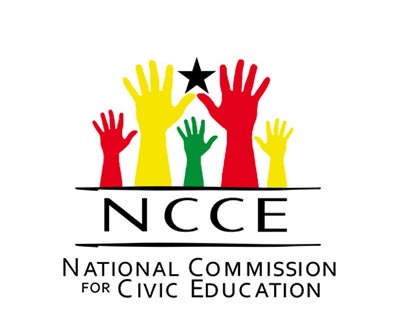
8th March, 2022
LET’S PROVIDE AN EQUAL PLATFORM FOR WOMEN TO BREAK THE BIAS- NCCE
The National Commission for Civic Education (NCCE) joins the global community to celebrate women the world over. International Women's Day is marked annually on 8th March to recognize women who have achieved laurels in the social, economic, cultural and political spaces. The theme for this year is, “Gender Equality Today for a Sustainable Tomorrow”. It recognizes the contribution of women and girls around the world, who are leading the charge on climate change adaptation, mitigation, and response, to build a more sustainable future for all. The UN has identified climate crisis and disaster risk reduction as one of the greatest global challenges of the 21st century to advancing gender equality.
Women, as a component of marginalized groups all over the world including Ghana, are one of those affected by climate change. As we celebrate women’s achievements for their immense contribution to humanity, strengthening families, upholding democracies, development among others, we must be mindful of women’s role in adopting realistic and achievable policies and interventions to climate change.
Representation of women therefore in Parliament and decision-making processes is key to climate action. We must endeavour to ensure that women’s voices are heard as critical to effective change.
This call to “Break the Bias” is imperative to accommodate the views and contributions of women in national development. Women are constantly discriminated against when it comes to politics, governance, workplace, education, religion, marriage, entrepreneurship, entertainment and others.
A 2020 United Nations report found that almost 90% of men and women hold some sort of bias against females, with these biases stretching to areas such as politics and the labour market where women are more likely to be paid less than their male counterparts or get promoted to senior positions in longer periods. The report concluded that no country in the world could boast of having achieved gender equality.
Our 1992 Constitution proscribes discrimination in all forms. Article 36 (6) states that “the State shall afford equality of economic opportunity to all citizens; and in particular, the State shall take all the necessary steps so as to ensure the full integration of women into the mainstream of the economic development of Ghana”. However, the percentage of women in Ghana’s Parliament is a mere 14.5% as compared to Rwanda where women have 61.3% representation in their Parliament. In the Ghanaian corporate world, it is estimated that women make up 8% of Chief Executive Officers (CEO’s) and Managing Directors (MDs), 15% of Chief Operations Officers (COOs) and 13% of Chief Finance Officers (CFOs), (2020, Boardroom Africa.com). This statistic is not good enough. Women are capable of performing well in leadership roles if given the chance. We must urgently intensify efforts to encourage inclusivity and equip women with the requisite skills to take up leadership roles.
As we address the need for better representation of women at workspaces, it is also essential to address the need to punish people who perpetrate gender-based violence against women. Women deserve to exist in a space where they do not fear for their lives, but have adequate safety and sound mental health and well-being. The NCCE calls on institutions and the people of Ghana to use a new generation of policies to change these discriminatory beliefs and practices to break the bias.
Women and girls should play active roles in leadership positions as well as take advantage of incentives that are created to encourage women and girls to enter traditionally male-dominated industries. It is very important that women who have made strides in different fields mentor upcoming young ladies so that they learn from them in the fields of Science, Technology Engineering and Mathematics (STEM), Finance, Entertainment, Sports and Politics among others. This will feed into the global goal of achieving gender equality and empowering women and girls by year 2030 in accordance with the Sustainable Development Goal (SDG 5).
In our quest to changing mindsets on gender biases through active public education, it is equally important that we also consciously nurture young children not to fall for gender stereotypical roles in order to promote gender equality today for a sustainable tomorrow. In so doing, we would build resilience to accelerate and sustain achievement of agenda 2030 to create a fair, equitable and peaceful world.
Let’s provide an equal platform for women to break the bias!


Leave a comment